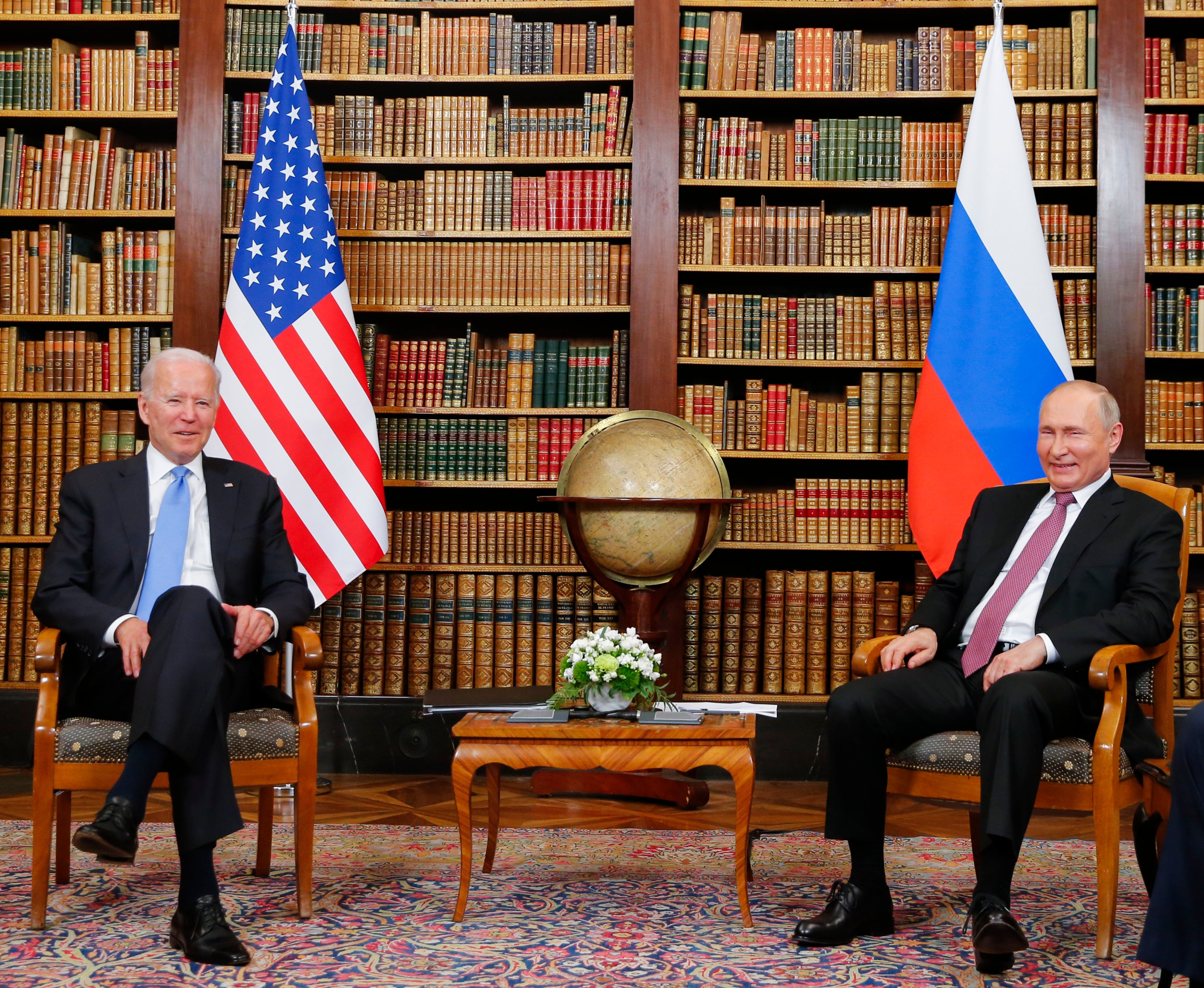SUMMIT NOTEBOOK: Biden nods, but what did he really mean?
What does it mean when President Joe Biden nods his head

Your support helps us to tell the story
From reproductive rights to climate change to Big Tech, The Independent is on the ground when the story is developing. Whether it's investigating the financials of Elon Musk's pro-Trump PAC or producing our latest documentary, 'The A Word', which shines a light on the American women fighting for reproductive rights, we know how important it is to parse out the facts from the messaging.
At such a critical moment in US history, we need reporters on the ground. Your donation allows us to keep sending journalists to speak to both sides of the story.
The Independent is trusted by Americans across the entire political spectrum. And unlike many other quality news outlets, we choose not to lock Americans out of our reporting and analysis with paywalls. We believe quality journalism should be available to everyone, paid for by those who can afford it.
Your support makes all the difference.What does it mean when President Joe Biden nods his head?
Apparently not much, according to the White House
Biden's silent nod during a photo op Wednesday at his summit with Russian President Vladimir Putin appeared to suggest that he can take Putin at his word. A reporter had shouted over colleagues to ask Biden whether Putin could be trusted.
That nod set off a flurry of media speculation — had Biden just indicated a new level of trust about the man he days ago referred to as a “worthy adversary?”
Not so fast, the White House said.
Communications director Kate Bedingfield and press secretary Jen Psaki both said Biden wasn't responding to a particular question during the chaotic moments when U.S. and Russian reporters shouted over each and struggled to get into the small room for a glimpse of the leaders.
Biden was just acknowledging the media generally, they said.
Bedingfield added that Biden earlier had said his approach to Putin would be to “verify, then trust.”
—-
Some pushing and shoving between journalists and security officials is practically routine at high-level news events, but unusually fierce shoving and shouting broke out at the Biden-Putin photo op.
Russian and U.S. security officials initially blocked journalists as they tried to enter the small, library-like room where the leaders sat.
U.S. journalists described Russian security and news media grabbing them by the arms and clothes to try to hold them back. U.S. journalists tried to shoulder their way in, and one was knocked to the ground.
Some reporters were heard screaming “stop pushing” and “don't touch me.” Others described being crushed in the melee.
Biden and Putin watched awkwardly at first, then laughed at the tumult.
—-
Izet Heta had to walk a meandering route to get to his job as a concierge for a multinational in Geneva and to a later COVID-19 vaccination appointment, because of summit security.
But Heta said the inconvenience largely was worth it.
The Kosovo native, now a Swiss citizen, said he hoped Biden and Putin hadn't “come for nothing. They should get something done, anyway.”
Heta said he felt good that the leaders chose Switzerland for the meeting. Heta invoked “Geneva International” — the city's self-branded moniker as a hub of multilateralism.
The leaders brought separate contingents of hundreds to town for the summit amid a political chill between the U.S. and Russia. Some 2,000 Swiss police and troops provided security.
—-
The Swiss government will reimburse scores of businesses in Geneva that were forced to close because of security measures surrounding the U.S.-Russia summit.
Geneva officials adopted a decree to compensate the owners of shops that ended up inside the security perimeter set up for the meeting between Presidents Joe Biden and Vladimir Putin.
Laurent Paoliello, a spokesman for the regional security department, says the federal government will provide the funding but cautioned that it wouldn’t be a “blank check.”
The spokesman says the payments will be distributed after an analysis of revenue shortfalls by up to 100 businesses.
__
Keaten reported from Geneva. Associated Press reporter Darlene Superville contributed from Washington, D.C.,